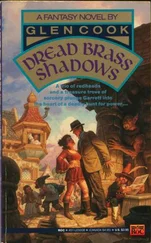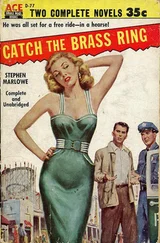“The hospital,” your mother says.
Because of the pain, her words take a little longer to process, but then you remember what a hospital is. Hospital is a place people go to detox or die. It handles cases outside of the purview of the walk-in clinic, such as brain tumors, and that’s about it, as far as your mother is concerned. You’ve never had a brain tumor, and thus you’ve never been anywhere but a walk-in clinic, and even that was reserved for cases of strep bad enough for the white phlegmy spots to travel from your tonsils to your tongue. Everything else is manageable with children’s aspirin or NyQuil, and she always buys the unswallowable green liquid kind of the latter, to ensure that you really, really need it.
“What do you mean, ‘hospital’?” you say.
Instead of looking at you, she glances in the rearview mirror. “Just in case,” she answers.
“Just in case what?”
“In case you have a concussion.”
“A concussion? But I don’t. I’m fine. I’m awake, I’m fine.”
“They don’t always just knock you completely out. You’re obviously acting weird.”
“I’m fine,” you say again.
“You’re not yourself.”
“But I am.”
“You’re absolutely not. That person in Mr. DiPietro’s office, that wasn’t Luljeta.”
“But it was,” you say.
“Oh no it was not. Don’t try to tell me. I’m her mother. You think I don’t know Luljeta?”
“Why are you talking about me in the third person?”
“Because that’s the person I know, and it wasn’t the person sitting in that office,” she says.
“Well,” you say. “I guess you don’t know all of her. I mean me. You don’t know all of me, because that was me, too.”
She stops at a green light, and the cars behind you honk like a flock of geese headed south. It appears, for a moment, that she’s the confused one, as if she were the one who’s had her frontal lobe knocked against her skull.
“Go,” you say, and even more strangely, she does what you tell her to.
It takes a few more minutes to convince her that you don’t need a brain scan, just a sofa and a cup of tea, that beverage that she thought was reserved for people on the Titanic . Drinking anything besides a cup of burnt Dunkin’ Donuts is evidence of putting on airs. It’s just one more example of her not knowing all of Luljeta, such as the part of you that thinks Dunkin’ Donuts tastes like the carpet of the basement rec room where your grandmother’s AA meetings are held.
Your freezer has never held either ice-blue gel packs or bags of peas, since chemical goo and most green vegetables are considered equally inedible by your mother, so back at home, she hands you a frozen box of eggplant Parmesan Lean Cuisine to press against your eye, and she paces around while the water in the kettle heats up. It’s not that she yells at you often, but you’re certain it’s coming, the traditional kind of scolding and punishment that you’ve largely avoided your whole life, though you aren’t sure how much punishment a grounding will be, since you aren’t exactly managing a packed social calendar and can watch whatever TV shows you miss on the Internet before she comes home from work. You’ve already planned your defense, one that, on its surface, seems pretty banal, but that underneath, you think, has a nice little zing to it: What kind of person would just stand there and take it? Is that the kind of person you want to have raised?
But she isn’t yelling. She isn’t talking. She’s barely looking at you, until finally, after the kettle whistles and she hands you a cup of fancy Lipton tea, she holds her face in her hands and says, “What did I do?”
Which, of course, is a response you don’t understand, and so you go to your planned defense, to try to steer things back on course.
“What kind of person would just stand there and take it? Is that the kind of person you want to have raised?”
And that only makes things worse. She looks at you as if you’re speaking some foreign language and raises her arms up in questioning, which makes her look like a portrait of Mary on a dollar store novena candle.
“I mean, what happened? How could this happen?” she says, though you’re pretty sure she isn’t even directing the question at you, the only other person in the room.
You realize that she’s not going to take away your TV privileges or keep you from your nonexistent crew of friends, but you also realize that she’s going to look at this as a thing, which, really, it is, only she’s going to make it her thing, and you feel the same surge in your chest that you felt staring at that message from NYU on the library computer screen, and in facing Margarita earlier that day: rage. Finally you have a name for the thing that’s been pressing against your chest when you watch perfectly regular people in the checkout line at the grocery store buying perfectly regular things, like paperback books written by members of the Duck Dynasty, things that make you feel incomprehensibly lonely. It’s the thing that you feel more toward Long Island girls who’ll be taking your place at NYU next fall than toward the admissions counselors who rejected you, more toward the kids who walked away in the aftermath of the fight, their backpacks sagging down past their butts like colostomy bags in need of emptying, than toward Margarita. It’s what your mother triggers in you by insisting you like mushrooms instead of asking if you do—the answer has always been, and will always be, no—and the thing somehow absent when you think about your father, even though he had walked away just like those kids at school. Maybe it was admirable, what he did. Brave. Badass. There are songs written about non-fuck-givers like that.
There are no songs written about your mother.
“God,” she says, invoking an entity she uses only as a pinboard for things that make her angry.
“What does God have to do with this?” you say.
“It’s just a word, Luljeta. I don’t understand why you’re being such a bitch to me. I’m not the one who punched you in the face.”
“You’re not the one who got punched in the face, either, but you’re acting like you are. You haven’t even asked me how I am.”
“What are you talking about? I’ve done nothing but ask you how you feel.”
“No, you’ve done nothing but tell me how I feel.”
“That’s not true.”
You attempt to look at her wryly with your one good eye.
“Well,” she says. “It’s pretty obvious how you feel. You feel serious throbbing in your face and you feel freaked out about what being suspended is going to mean for your transcript.”
Transcript. Ha.
“And what else?” you ask.
“You’re embarrassed that you got hit in front of so many people,” she says.
“What else?”
“You think Mr. DiPietro is a damn idiot.”
“What else?”
“You’re mad at me for some reason, even though I’m not the one who did this to you.”
You have to stop to think about this last one. You’re clearly mad at her, but did she do this to you? It’s not like she tried to have no clue. Margarita may have targeted you because of the things you have that she doesn’t, such as an intact hymen and at least a single person in the world who gives a shit about you, but is that your mother’s fault? It isn’t that you want to be altogether unloved and neglected, like Margarita and so many of her remedial peers, it’s that often the love your mother gives feels like it’s being rejected by your body, as if you’re the B-positive recipient of an A-negative blood donation.
“You’re crying,” your mother says.
“No, I’m not. The Lean Cuisine is melting,” you answer. And then you say, “What I felt most was free.”
Читать дальше












